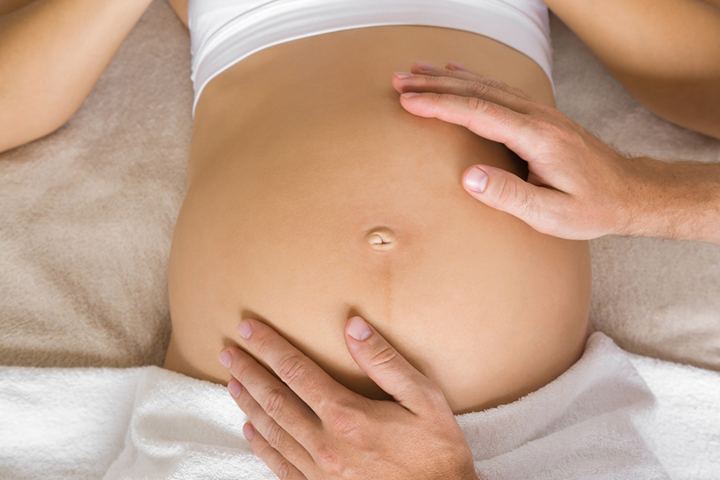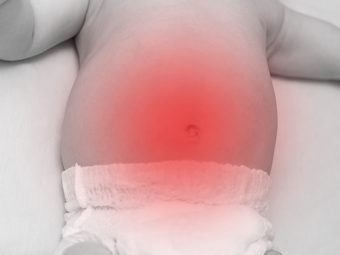
Image: Shutterstock
As you eagerly await the arrival of your little one, it’s not uncommon to have concerns about your baby’s position. A breech presentation, where the baby’s head is positioned upward instead of facing downward, can sometimes occur. While medical interventions like a cesarean section may be recommended in certain cases, there are natural methods you can explore to encourage your baby to turn into the optimal position for birth. In this article, we’ll delve into several gentle and natural techniques that can potentially help your breech baby turn.
- Understanding A Breech Baby: What You Need To Know
Image: Shutterstock
When it comes to pregnancy, the position of your baby plays a crucial role in the birthing process. A breech presentation occurs when your baby’s buttocks or feet are positioned to come out first instead of their head. Various factors can contribute to a breech presentation, such as premature birth, multiple pregnancies, or certain developmental abnormalities.
It’s important to remember that a breech presentation doesn’t necessarily indicate a problem with your baby or you. However, it does require additional attention to ensure the safest delivery possible. By exploring natural techniques to encourage your baby to turn into the optimal head-down position, you can actively support their positioning and potentially increase the chances of a smooth vaginal birth.
1. Practice The Breech Tilt Exercise
Image: Shutterstock
The breech tilt exercise is a simple and safe technique that you can try at home. Start by finding a sturdy surface, like an ironing board or large cushion, propped up against firm support. Lie down with your hips elevated higher than your chest and stay in this position for 10 to 15 minutes, a few times a day. This gentle inversion encourages the baby’s head to move downwards and may increase the likelihood of a successful turn.
2. Utilize The Knee-To-Chest Position
The knee-to-chest position is another natural method that can be done at home. Start by getting on your hands and knees, then lower your upper body to rest your forearms on the floor. Slowly lower your buttocks towards your heels, keeping your head and shoulders relaxed. Maintaining this position for 15 minutes, a few times a day can help create space in your pelvis, encouraging the baby to rotate head-down.
3. Try The Forward-Leaning Inversion
Image: Shutterstock
Forward-leaning inversions are gentle exercises that use gravity to your advantage. Find a comfortable surface, like a padded chair or couch, and kneel in front of it with your upper body resting on the surface. Keep your hips elevated higher than your knees and hold this position for 15 minutes, a few times a day. This technique can create room in the pelvis for the baby to turn naturally.
4. Seek The Expertise Of A Spinning Babies Practitioner
Consider reaching out to a Spinning Babies practitioner who specializes in techniques to optimize fetal positioning. They can guide you through exercises, stretches, and gentle movements specifically designed to encourage a breech baby to turn. These techniques focus on releasing tension and creating balance in the pelvis, providing an optimal environment for the baby’s movement.
5. Explore The Webster Technique With A Chiropractor
Image: Shutterstock
The Webster Technique, commonly used by chiropractors specializing in prenatal care, focuses on aligning the pelvis and reducing tension in the surrounding ligaments and muscles. By restoring balance and proper alignment, this technique may facilitate the baby’s movement into the head-down position. Consult with a chiropractor experienced in prenatal care and the Webster Technique for safe and effective adjustments.
6. Discover The Benefits Of Prenatal Yoga
Prenatal yoga can be a wonderful way to support optimal fetal positioning. Various yoga poses, such as the cat-cow stretch, pelvic tilts, and gentle hip openers, can help create space in the pelvis and encourage the baby to turn. Joining a prenatal yoga class or following online tutorials specifically designed for pregnant women can provide guidance on safe and effective yoga practices.
7. Find Relaxation and Visualization Techniques
Image: Shutterstock
Creating a calm and relaxed environment for both you and your baby is essential. Engage in activities that promote relaxation, such as deep breathing exercises, meditation, or prenatal massages. During these moments, visualize your baby turning into the head-down position. Positive affirmations and gentle conversations with your baby can also help create a serene and nurturing atmosphere.
Navigating a breech baby situation requires personalized guidance from your healthcare provider. They will consider your unique circumstances and ensure the safety of both you and your baby. While natural techniques offer a chance to actively support your baby’s positioning, there are no guarantees. Approach these methods with patience, trust your instincts, and keep an open mind. Embracing these natural approaches can deepen your bond with your baby and create a positive and empowering birth experience. Remember, every pregnancy is a remarkable journey, and by staying informed and seeking support, you can make informed decisions that align with your goals and celebrate the beauty of this transformative process.

















